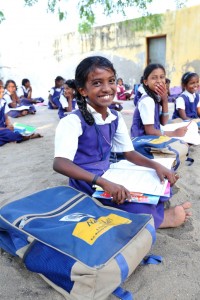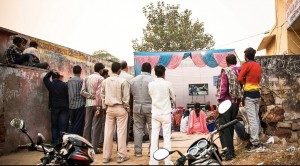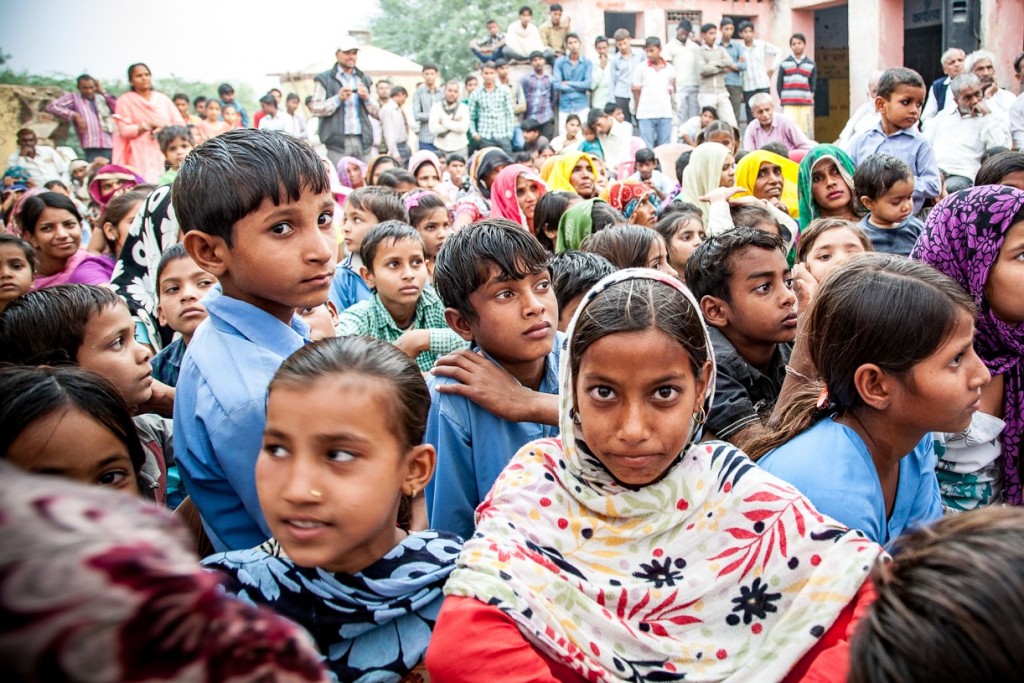India will be at the rear in achieving global education commitments of the 2030 Sustainable Development Goals (SDGs), according to a report by UNESCO. At the current pace, it will be half a century behind.
“While in the majority of countries, education is the best indicator of climate change awareness, half of countries curricula worldwide do not explicitly mention climate change in their content. India is an exception, where currently some 300 million school students receive some environmental education,” it said.
United Nations Secretary-General Ban Ki-moon, on the eve of the International Literacy Day, emphasised “Literacy stands at heart of the 2030 Agenda,” and said:
“It is a foundation for human rights, gender equality, and sustainable societies. It is essential to all our efforts to end extreme poverty and promote well-being for all people. That is why the Sustainable Development Goals aim for universal access to quality education and learning opportunities throughout people’s lives.”
The statistics cited in the report have revealed only six percent of adults in the poorest countries and only five in India have ever attended literacy programmes, once they pass the formal schooling system. Additionally, it says an urgent need for greater headway in education and the sector needs a major transformation to fulfill the needed potential and meet the current challenges facing humanity and the planet.
In an effort to achieve the same, various companies under the 2% CSR mandate have chosen to fund and support the Education sector. According to data presented by Arun Jaitley in the Rajya Sabha, from a total of 460 companies, which spent on CSR in 2014-15, funds directed towards education was Rs 1462.6 cr out of Rs 6337.36 cr.

Ilam Mottukal,the girl child education programme of Vedantas sterlite copper in Tamil Nadu
A few companies have chosen to be aligned with the Indian government’s initiative of literacy & education initiatives across the country. Vedanta’s work with children’s education is targeted at the pre-school level, particularly through its Integrated Child Development Scheme (ICDS). Under the Vedanta Bal Chetna Anganwadi (VBCA) programme, Vedanta runs over 3,100 Anganwadis in partnership with the Indian government across several parts of India. In FY 2015-2016, about 71,000 children availed preschool level education in these child care centres.
Through Cairn India’s literacy initiatives in Rajasthan and Gujarat, Vedanta is supporting more than 150 schools by offering better learning tools to students. It also offers training to teachers in order to enhance the quality of education provided.
Case Study:
Anjuman is a 13 year old girl from the Meo Muslim community of a village called Tikari in Alwar, Rajasthan. Like every girl her age, she had aspirations for her future. She wishes to study to become a pilot someday so she can see the world from great heights. Unfortunately, Anjuman lost her father, the sole bread earner in their family when she was in the fourth standard. Since the mother was overburdened with the duties of running the house, the daughter was forced to discontinue her studies and help with the household chores the unfortunate fate of many young girls from this community. Resigning to her fate, she thought it best to bury her dream.

Community screening in Tikari village, Alwar. Pic Source: Girl Rising
In mid 2015, Girl Rising began a campaign in Rajasthan and Bihar that used the powerful medium of storytelling to bring into focus the many benefits of girls’ education. Central to their program in India is their film, Girl Rising: Woh Padhegi. Woh Udegi, which tells the stories of eight unforgettable girls from eight different countries who confront tremendous challenges to pursue their dreams. The two states bound together by common realities, this community had seldom come together to discuss issues thwarting dreams of several girls. Having created a platform that encouraged sharing stories, this not only unveiled local solutions to local problems, but also provided a platform cutting across gender, age, sex and economics, to create a level-playing field.
During one door to door visit to encourage family members to see value in sending their daughters to school an NGO field worker, visited Anjuman’s home. On meeting and explaining Anjuman’s mother the benefits, it was met with reluctance.
After months of regular follow-up, Anjuman’s mother finally relented, agreeing that if she herself had access to education, her life would have been much different. By now, Anjuman had lost the self confidence and motivation to attend school. She hadn’t been to school for the past four years, she would now need to resume her education from class 5 and would be visibly older than her classmates. Overcome by feelings of embarrassment, she felt uncertain of her decision to go to school.
Afsana holding Anjuman’s hand and walking her to school. Pic Source: Girl Rising
Afsana, Anjuman’s friend, understood how important schooling is and vowed to support Anjuman find her way back to school. All of 13 years, Afsana offered to help Anjuman with all her household responsibilities so that she can make time for reading and school work. As support from her mother and her dear friend mounted, Anjuman slowly began to find her way back to school. Afsana held Anjuman’s hand and walked her to school on her first day allowing the feelings of shame and embarrassment that had conjured in Anjuman’s mind to slowly disappear.
Thank you for reading the story until the very end. We appreciate the time you have given us. In addition, your thoughts and inputs will genuinely make a difference to us. Please do drop in a line and help us do better.
Regards,
The CSR Journal Team

